The views expressed in our content reflect individual perspectives and do not represent the authoritative views of the Baha'i Faith.
Many well-known, illustrious people in Abdu’l-Baha’s day had fine things to say about this extraordinary individual. But a U.S. president who praised Baha’i teachings? Now that’s stretching credulity too far! Or so I thought. “Just another rumor,” I mused. “Show me the proof!”
But seeing is believing. Thanks to Duane Troxel, Ph.D., I read, with great interest, a news story from The New York Daily Tribune, published on Saturday, January 12, 1912. The headline reads: “Roosevelt Among Sylphs: Ex-President Guest at Three Arts Club Reception” (p. 7). (You can download this news clipping here.) Let’s take a look together at this seemingly inconsequential event in order to discover something of significance. The article begins:
There was a mighty fluttering of hearts yesterday afternoon among the graces and the sylphs of the Three Arts Club, at No. 340 West 85th Street, for the word that had gone around that Theodore Roosevelt, despite his declination of many higher sounding invitations, would really be present at a reception they were to hold in honor of certain actor folk who are going to give their services at a matinee for the benefit of the club on February 6.
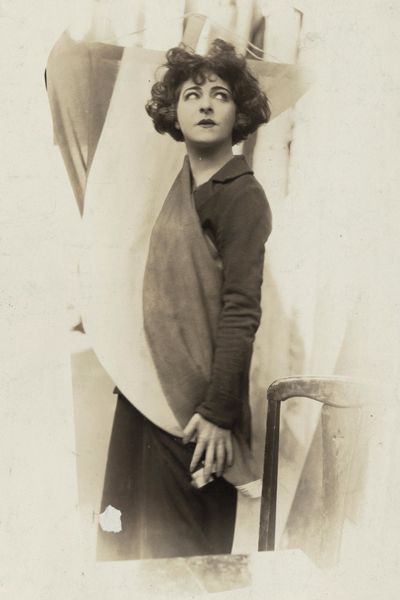
Madame Alla Nazimova (Source: Library of Congress)
Technically, a “sylph” is an imaginary spirit of the air (or perhaps a wood nymph, depending on the correct etymology). But here, it means “a slender woman or girl.” It’s clear that the unnamed reporter is covering a social event. (Interestingly, the “U.S.S. Sylph” was the name of the smaller of President Roosevelt’s presidential yachts.)
Then a series of seemingly unrelated anecdotes follow. Former President Theodore Roosevelt made his grand entrance, after ushering in a certain “Nazimova” who happened to arrive at the very same time. Madame Alla Nazimova was a famous Russian actress, on stage and in silent films, and a women’s suffragist who advocated for equality of women and men. Whereupon Roosevelt engaged in a “healthy handshaking contest at one end of the room.”
The anonymous reporter goes on to describe the “slender and soulful nymphs” who swirled and swooned around the President, who rose to the occasion with the usual exchanges of pleasantries, niceties and witticisms, and who comported himself with the poise and dignity becoming of a President, and who did not fail to entertain as well as impress, as the reporter anecdotally relates:
“Hasn’t he wonderful great repartee?” one naiad whispered to a hamadryad.
I must confess: I had to look up these two words in the dictionary: “naiad” and “hamadryad.” Here’s what they mean:
In classical mythology, a “naiad” is a water nymph, said to inhabit a spring, waterfall, or river. Similarly, in Greek and Roman mythology, a “hamadryad” is a nymph who dwells in a tree and dies when the tree dies. You get the picture: an idyllic, high-society event, with a former President and swooning admirers. On such high-profile occasions, the President is the center of attention, surrounded by lovely young ladies. Naturally, “Mr. Roosevelt was the most popular man there.”
Like the sound of the proverbial tree that falls in the forest, the President’s remarks would not have made a sound in historical memory, had it not been for the presence of this unheralded reporter, who recorded soundbites in print, digitally archived for well over a century, and now brought to light. Let’s now go back to the Three Arts Club in New York on that memorable night.
After having just been congratulated for becoming a grandfather, Teddy Roosevelt then “made half a dozen little impromptu speeches to the girls as they clustered about him,” and “then branched out on to more general remarks on conduct in general and on conduct for girls in particular.”
Then Roosevelt “told him how much in favor of the Three Arts Club he was” and “how he approved of its work.” This may have had a lot to do with the fact that “his sister, Mrs. Douglas Robinson,” was “a director of the club,” as we discover at the very end of the article. President Roosevelt’s sister’s first name surely was not “Douglas.” But such was the convention in those days, where a married woman’s identity was completely bound up with that of her husband.
Suddenly, out of thin air, our attentive (even if over-the-top) reporter notes the following “impromptu speech,” documented as follows:
He [Theodore Roosevelt] pronounced himself as wonderfully impressed with the teachings of Abdul Baha, the Persian teacher of a universal religion, just liberated from prison and expected in this country in May. He declared that Abdul’s [sic] teachings would lift Mahometanism up spiritually into line with Christianity and would make for world peace. The important subject of Abdul Baha was called to his attention by a member of the club.
What an extraordinary statement for an American president to make! Let’s take a closer look at some larger issues that invite further consideration.
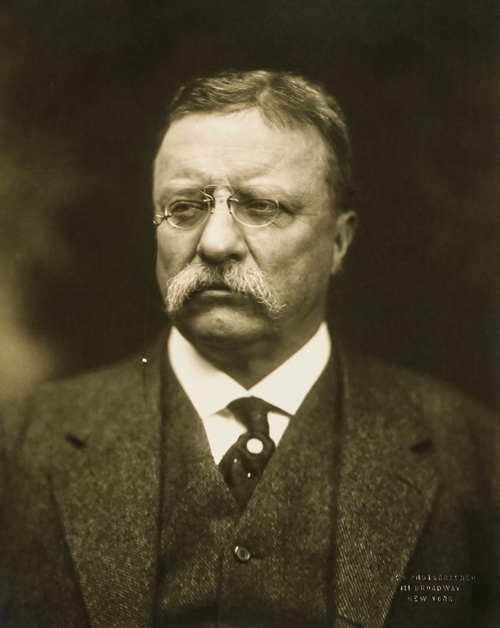
Theodore Roosevelt
First, we see that one member of the club had the presence of mind to ask what the President thought of Abdu’l-Baha. Who was this patron of the arts, who knew about Abdu’l-Baha? How was it that the leader of the Baha’i Faith could be the topic of conversation in New York high society, and even in presidential circles? Like the reporter, we simply do not know. (My guess? The well-known Baha’i artist, Juliet Thompson.)
Given its close attention to flamboyant detail in covering this social event, not only is this reportage extraordinary for its social content, it is impressive for its attention to details as to what was actually said on matters of social consequence. The very fact that President Roosevelt “pronounced himself as wonderfully impressed with the teachings of Abdul Baha, the Persian teacher of a universal religion, just liberated from prison and expected in this country in May” shows that President Roosevelt was remarkably well-informed on current events, at home and abroad. Presumably this topic previously had been brought to the President’s attention.
The very fact that the “subject of Abdul Baha” was characterized as “important” is remarkable as well. Equally impressive is the short description of the Baha’i Faith which, although not named, is correctly described as “a universal religion” quite distinct from Islam.
President Roosevelt expressed the opinion that the Baha’i “teachings would lift Mahometanism [Islam] up spiritually into line with Christianity.” That, in itself, reflects the view—whether right or wrong, justified or not—that somehow Christianity was more socially progressive than Islam at that time. Perhaps the President’s most interesting and profound remark was the prediction that the Baha’i teachings “would make for world peace.”
Of course, the reporter was right: the Baha’i Faith promoted world peace while Europe was on the verge of World War I. Abdu’l-Baha foretold that war for years, as though imminent and inevitable unless humanity changed its ways:
Today all the nations of the world are animated with a warlike spirit and all the governments of the world are filling their military storehouses, inventing infernal machines and perfecting their man-killing engines; so that their martial powers may preponderate each other; especially the Continent of Europe has become an arsenal of combustible materials. It needs only one tiny spark to set that hell into a world-wide explosion. It will be then such a titanic conflagration that its lurid flames shall blazon all the horizons. – Abdu’l-Baha, from a letter written 8 August 1914, Star of the West, Volume 4, p. 183.
Download the New York Tribune article about Roosevelt’s visit to the Three Arts Club.
Download the Detroit Free Press article which cites this event as well.
You May Also Like
Comments



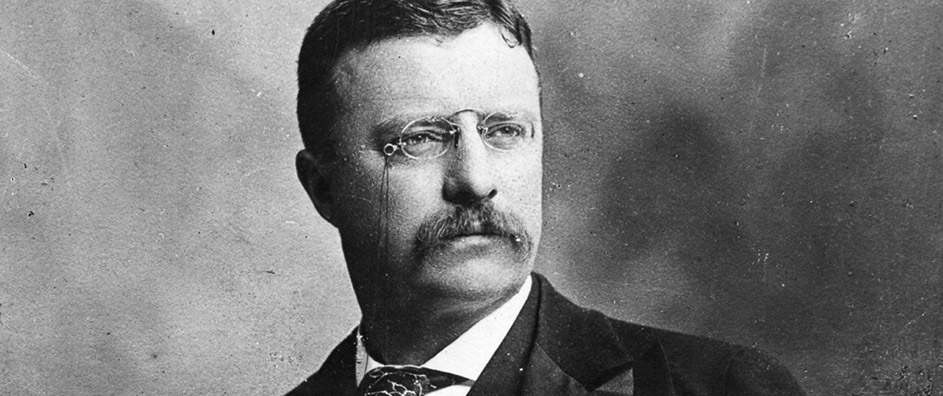


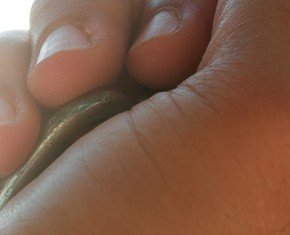
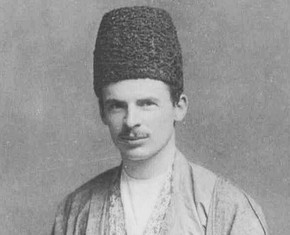










1. “Roosevelt Among Sylphs: Ex-President Guest at Three Arts Club Reception.” The New York Daily Tribune (Saturday, January 12, 1912): p. 7.
Earlier today, a second article was posted for download:
2. "WAITS WHILE T. R. TALKS TO BLACKS: 200 Girls of Dramatic Club Afterward Ask Him Questions About Everything. DISCIPLE OF BAHAI IS ENCOURAGED BY COLONEL Says He Told Her Better Feeling Between Christians and Moslems is Desirable." Special to The Free Press. Detroit Free Press ...(20 Jan 1912): p. 2.
I just found a third article about this event (but with no mention of Abdu'l-Baha):
3. "COL. ROOSEVELT HONOR GUEST: At Reception for Artists of Three Arts Club Benefit Performance." New York Times (20 Jan. 1912): p. 13.
"At the close of this meeting former President, Mr Theodore Roosevelt, called and had a wonderful visit with 'Abdu'l-Bahá."
(SOW - Star of the West, Star of the West - 9)